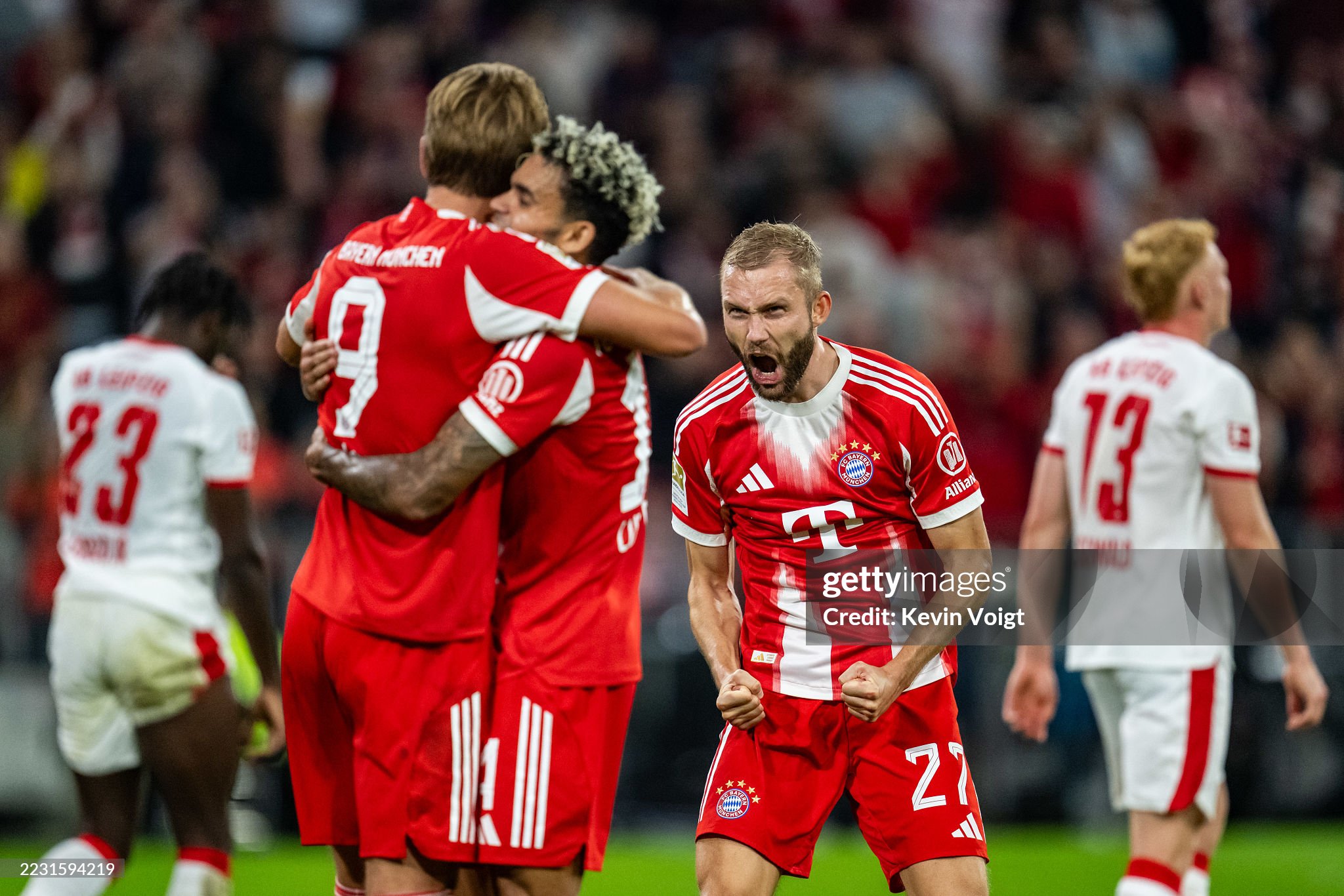The Barcelona coach praised the Spanish player after receiving the Best Coach of the Year award from 'Bild'.
 Embed from Getty Images
Embed from Getty Images
The German coach Hansi Flick, who is currently at the helm of Barcelona, was recently honored with the prestigious Best Coach of the Year award by the German newspaper Bild.
The recognition comes after his impressive debut season in charge of the Catalan club, a campaign that not only stabilized a team in transition but also raised expectations for the years ahead. Flick’s arrival at Barcelona was seen as a gamble by some, but the former Bayern Munich and Germany manager has quickly silenced doubts by combining discipline, tactical clarity, and a focus on youth development.
During the award ceremony, Flick did not shy away from discussing some of the most sensitive topics surrounding Barcelona. One of the main points of attention has been the situation between the posts, with the club currently having three top-class goalkeepers at its disposal: Joan García, the promising young Spanish keeper; Marc-André ter Stegen, the experienced German shot-stopper and long-time Barça No. 1; and Wojciech Szczesny, the Polish international who arrived to add depth and competition to the squad. This wealth of talent has created a dilemma for Flick, who must balance respect for established players with the need to push forward with the club’s long-term vision.
Among the highlights of his speech, Flick reserved particularly strong praise for the teenager who has taken world football by storm: Lamine Yamal. The 18-year-old winger has become a key figure for Barcelona despite his youth, consistently producing decisive moments in big matches. Flick was effusive in his admiration, describing him as nothing short of extraordinary.
“He is an absolute genius. Especially at his age, at 18, he can decide matches on his own,” said Flick with visible enthusiasm. “He is on the right path. He is also very intelligent. But of course, he is still very young, only 18, and he has to learn from others. We support him. I am convinced that he will be one of the best players the world of football has ever seen.”
Those words carry significant weight, considering Flick’s experience working with world-class talents during his time at Bayern Munich, where he coached players like Thomas Müller, Robert Lewandowski, and Joshua Kimmich. By placing Yamal in such company, Flick has raised expectations even further, while also underlining his trust in Barcelona’s academy and its ability to produce generational talents.
The coach also touched upon the case of Joan García, who has rapidly earned the confidence of the coaching staff and the admiration of supporters. Flick made it clear that the decision to bet on García was not his alone but rather a collective choice within the club’s sporting structure. “We have a very young and talented goalkeeper, who is at a very, very good level,” he explained. “We all decided together that he should be the future of Barça. So for me, it was clear what our approach should be.”
However, García’s emergence comes at a complicated time for Marc-André ter Stegen, who has been battling a serious back injury. The German goalkeeper, long considered one of the very best in the world, faces a recovery period of around four months. This puts him in a difficult position ahead of the upcoming World Cup, as his match fitness and ability to regain his starting spot both for Barcelona and Germany could be compromised. Flick acknowledged the challenge but stressed that he fully supports the veteran.
“For me, it is important that Marc and the club have come closer together and that they have sought the right communication,” Flick said. “For me, it is important that Marc returns. He is a top goalkeeper and has all our support to get back to his best level.”
Nevertheless, Flick also made it clear that the recovery of ter Stegen does not automatically guarantee him a place in the starting eleven. He was cautious, hinting that competition for places would remain fierce and merit-based. “We cannot promise minutes to anyone,” he implied, highlighting the reality that by the time ter Stegen is fit again, Joan García may already be firmly entrenched as the team’s first-choice goalkeeper. The timing of the injury is particularly unfortunate, as his return is projected to coincide with one of the most decisive phases of the season, when Barcelona will likely be fighting for titles both domestically and in Europe.
This debate is especially relevant in the context of La Liga, where every detail can make the difference in the title race. Barcelona are locked in a fierce battle with traditional rivals Real Madrid and emerging challengers like Atlético Madrid and Girona, with defensive solidity often proving decisive in close encounters. Flick knows that having stability in goal is essential if Barça are to reclaim domestic dominance. Joan García’s form could be one of the defining factors in Barcelona’s push, while the eventual return of ter Stegen could either strengthen the team further or create a delicate selection headache at a crucial moment.
The arrival of Szczesny adds another layer to this puzzle, as the Polish international, with his vast experience at Juventus and Arsenal, is more than capable of handling pressure situations. Flick now faces the task of managing three goalkeepers of international pedigree, each with strong credentials, ambitions, and expectations. This type of situation, while enviable in terms of squad depth, can also create friction if not handled with tact. Flick’s diplomatic but firm comments suggest he is fully aware of the challenges ahead, particularly when La Liga points are at stake in a league where the margin for error is razor-thin.
Beyond the goalkeeping debate, Flick’s recognition by Bild also speaks volumes about his broader impact on Barcelona. He has introduced a more balanced style of play, blending Barcelona’s traditional attacking philosophy with the kind of defensive organization he is known for. His faith in young players has rejuvenated the squad, while senior players have spoken positively about the new sense of discipline and purpose within the dressing room.
As Barcelona look ahead, the spotlight will remain firmly on the development of Lamine Yamal, the recovery of ter Stegen, and the performances of Joan García. Flick, however, seems to be embracing the complexity of the situation, seeing it not as a burden but as a sign that Barcelona’s squad is once again filled with talent capable of competing at the highest level. His words suggest a long-term project where young talents are nurtured but also challenged, where experience is valued but never taken for granted, and where the ultimate priority is collective success.
For the fans, hearing Flick describe Yamal as “an absolute genius” and predicting a bright future for García is both reassuring and exciting. At a time when Barcelona continues to face financial constraints, the message from their coach is clear: the future lies in blending youth, experience, and a collective vision for success a formula that, if executed correctly, could return Barça to the top of La Liga and reestablish them as a force in Europe.








